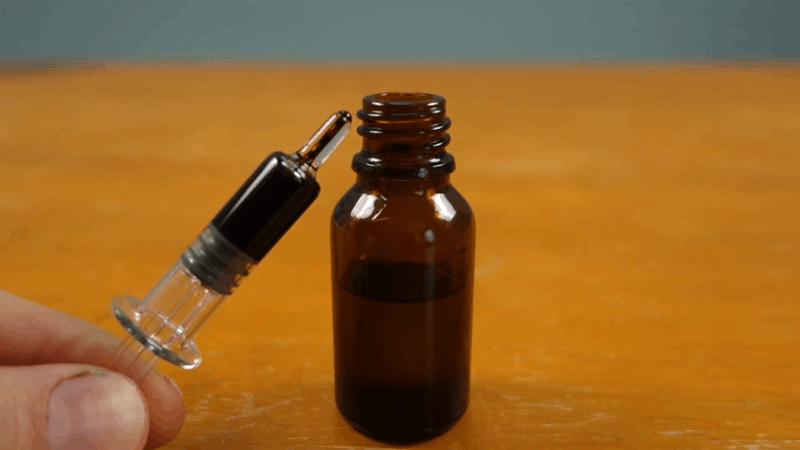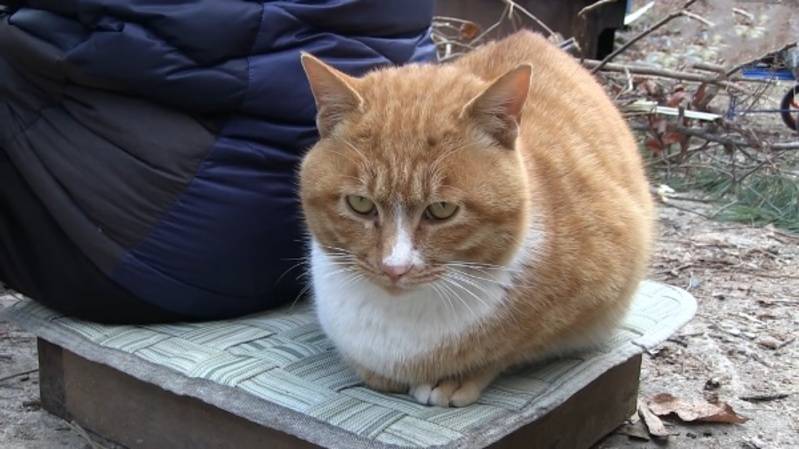No products in the cart.
CBD oil for Crohn’s disease in cats has been generating a lot of interest lately. Derived from cannabis plants, this natural compound holds potential benefits for our feline friends who are dealing with this chronic condition affecting their gastrointestinal tract.
In this blog, we will discover CBD oil for Crohn’s disease in cats and the potential benefits of CBD oil for Crohn’s disease in cats. We’ll cover the common symptoms, discuss the factors to consider when choosing CBD oil, and provide tips on how to take CBD oil for Crohn’s disease for your beloved pet.
CBD Oil for Crohn’s Disease in Cats
CBD is a natural compound derived from cannabis plants. It has gained attention for its potential benefits in managing various health conditions, including Crohn’s disease. CBD is occasionally taken into consideration as a treatment option for cats who have Crohn’s disease.

What Is Cat Crohn’s Disease
Crohn’s disease is a chronic condition that affects a cat’s gastrointestinal tract. It is characterized by inflammation and damage to the walls of the digestive system. Its exact cause is unknown, but scientists believe that it is influenced by genetics, the environment, and the immune system.
Crohn’s Disease Symptoms in Cats
Not all cats will show the same indicators of Crohn’s disease, which might cause symptoms to differ. But a few typical signs are as follows:
- Chronic diarrhea: Cats with Crohn’s disease often experience persistent diarrhea that may contain blood or mucus.
- Vomiting: Cats may vomit frequently, which can further contribute to dehydration and weight loss.
- Weight loss: Due to digestive issues and reduced nutrient absorption, cats with Crohn’s disease may lose weight.
- Poor appetite: Cats may have a decreased appetite or show signs of food aversion due to discomfort or pain associated with eating.
- Abdominal pain: Cats may exhibit signs of discomfort or abdominal pain, such as restlessness, vocalization, or a reluctance to be touched in the belly area.
- Lethargy: Crohn’s disease can cause fatigue and lethargy in cats, leading to decreased activity levels.
Impact on a Cat’s Quality of Life
Cats with Crohn’s disease may experience considerable reductions in their overall quality of life. As a result of the condition’s chronic nature and its accompanying symptoms, discomfort, suffering, and decreased well-being may result. Due to decreased digestion and absorption, cats with Crohn’s disease may encounter restrictions in their everyday activities, struggle to maintain a healthy weight, and endure nutritional shortages.
Potential Benefits of CBD for Crohn’s Disease in Cats
CBD oil for Crohn’s disease holds potential benefits for managing gastrointestinal conditions in general. Here are the potential benefits of CBD for cats with Crohn’s disease:
- Anti-inflammatory properties: The digestive tract’s inflammation and Crohn’s disease symptoms can be reduced because of CBD’s anti-inflammatory qualities.
- Pain relief: CBD may have analgesic properties and can potentially help alleviate abdominal pain and discomfort experienced by cats with Crohn’s disease.
- Appetite stimulation: Crohn’s disease can cause decreased appetite in cats. CBD oil for Crohn’s disease may help stimulate the appetite and promote healthy eating habits.
- Stress and anxiety reduction: Studies have indicated that CBD oil for Crohn’s disease has soothing effects and may aid in reducing tension and anxiety, which may be advantageous for cats that have Crohn’s disease.

Factors to Consider When Choosing CBD Oil for Cats With Crohn’s Disease
When selecting CBD for cat with Crohn’s disease, it’s important to consider the following factors:
- Quality and sourcing: Choose CBD oil that contains no pesticides or dangerous chemicals from reliable producers. Seek out products that have undergone third-party testing to verify their purity and potency.
- THC content: verify if the CBD oil has a low concentration of THC, the psychoactive ingredient in cannabis. THC can be toxic to cats and may have adverse effects.
- CBD concentration and dosage: Consider the concentration of CBD in the oil and consult with a veterinarian to determine the appropriate dosage for your cat’s specific needs. Start with a low dose and gradually increase it if necessary.
- Formulation: CBD oil for cats is available in various forms, such as tinctures, capsules, or treats. Pick a formulation that your cat will tolerate well.
- Veterinarian consultation: It is crucial to consult with a veterinarian before introducing CBD oil for Crohn’s disease to your cat’s treatment plan. They can provide guidance based on your cat’s individual health needs and help monitor their progress.
Symptoms That Indicate CBD Oil Is Not Suitable or Effective for a Cat With Crohn’s Disease
While many cats with Crohn’s disease may benefit from CBD oil for Crohn’s disease in cats, some indications may suggest a specific cat would not benefit from it. These symptoms include:
- Worsening of symptoms: If the cat’s symptoms worsen or show no improvement after a reasonable period of CBD oil usage, it may indicate that CBD oil for Crohn’s disease in cats is not effectively addressing their condition.
- Allergic reactions: If a cat displays symptoms of an allergic reaction, such as itchiness, swelling, or trouble breathing, it may be an indication that CBD oil is not suitable for this treatment.
- Negative side effects: Some cats who use CBD oil may develop negative side effects, including sleepiness, gastrointestinal distress, or behavioral abnormalities. It can be an indication that the cat is not responding well to CBD oil if these side effects linger or are severe.
- Drug interactions: If a cat is taking other medications for Crohn’s disease, it is essential to monitor for any potential interactions between CBD oil and those medications. If there are significant interactions or if the medications become less effective, it may indicate that CBD oil is not suitable for the cat.
How to Take CBD Oil for Crohn’s Disease
Here are some general guidelines for administering CBD oil to cats with Crohn’s disease:
- Consult a veterinarian: To get professional guidance, speak with a vet who is informed about CBD therapy for animals. They can help you choose the right dosage and guarantee that your cat is given a safe and efficient course of therapy.
- Choose a reputable CBD oil: Select a high-quality CBD oil specifically formulated for pets. Ensure that the product is derived from hemp and contains minimal THC, as THC can be harmful to cats.
- Determine the dosage: Follow the veterinarian’s recommended dosage instructions based on your cat’s weight, condition, and response to treatment. Start with a low dosage and gradually increase it if necessary, under the guidance of the veterinarian.
- Administer orally: CBD oil can be given orally by placing it directly into your cat’s mouth using a dropper or by mixing it with their food. Ensure your cat swallows the oil properly.
- Monitor your cat’s response: Observe your cat’s behavior and symptoms closely after administering CBD oil. Keep a record of any enhancements or modifications, and talk about them with your vet at subsequent appointments.
- Adjust dosage if needed: Based on your cat’s response and veterinary guidance, the dosage may need to be adjusted. It’s crucial to choose the ideal dosage that minimizes any potential negative effects while still producing the desired therapeutic outcomes.

Different Forms of CBD for Cats With Crohn’s Disease
CBD comes in a variety of forms for cats with Crohn’s disease. Here are a few popular forms:
- CBD oil tinctures: CBD oil tinctures are widely favored for cats and are available in a dropper bottle, enabling convenient administration of the oil.
- CBD treats: CBD-infused treats are a convenient option as they come in pre-measured doses. They can be a tasty way to administer CBD to cats.
- CBD capsules: CBD capsules contain pre-measured doses of CBD oil. They can be given directly to cats or opened and mixed with food.
- CBD topicals: While less common for Crohn’s disease, CBD topicals such as creams or balms can be applied externally for localized relief in cases of any skin inflammation or irritation.
Precautions When Using CBD Oil for Crohn’s Disease in Cats
While CBD is generally considered safe for cats, it’s important to take certain precautions:
- Quality and sourcing: Choose CBD oil from reputable manufacturers that provide third-party lab testing to ensure the purity and potency of the product. Avoid products that contain additives or harmful ingredients.
- THC content: Ensure that the CBD oil you choose has minimal THC content. THC can be toxic to cats and may cause adverse effects.
- Start with a low dose: Start with a modest dose of CBD oil. Monitor your cat’s response and consult with your veterinarian if you observe any adverse reactions.
- Watch for side effects: While uncommon, some cats may experience mild side effects such as drowsiness or gastrointestinal upset. If you notice any concerning side effects, discontinue use and consult with your veterinarian.
- Regular monitoring: regularly communicate with your veterinarian to evaluate the effectiveness of the treatment and discuss any concerns or adjustments needed.
- Individual response: Remember that each cat may respond differently to CBD oil. Some cats may experience significant improvements, while others may show no noticeable benefits. To choose the appropriate course of action, use patience and close collaboration with your veterinarian.
- Legal considerations: Understand the legal regulations surrounding CBD use in your region, as laws can vary. Ensure that the CBD oil you use is legal and obtained from reputable sources.
Conclusion
CBD oil for Crohn’s disease in cats holds potential as a natural treatment option, offering anti-inflammatory, analgesic, appetite-stimulating, and stress-reducing properties. However, individual responses may vary, and careful consideration of product quality, THC content, dosage, and monitoring for adverse effects is important. For cats with Crohn’s disease, working with a veterinarian is essential to determining compatibility, ensuring safety, and optimizing the usage of CBD oil.
I am Nelson Cooper, I pursue my passion for writing and my belief is that cats love humans. I enjoy traveling and have a deep appreciation for the beauty of nature, as well as a soft spot for animals, particularly cats.



